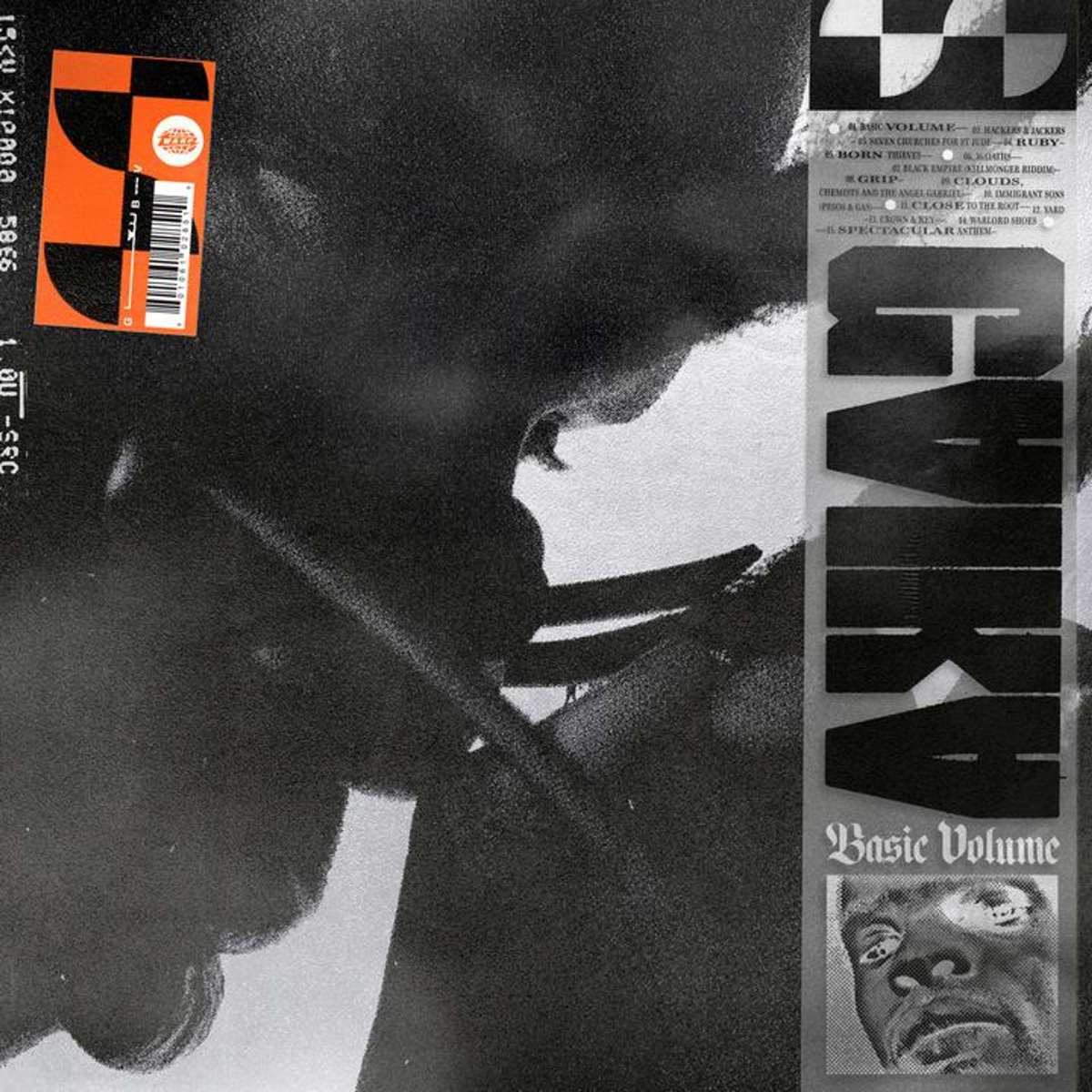Gaika’s first LP proper Basic Volume (Warp Records) enters the continuum of the ghostly matter that we call musical (sub)culture at the cusp between aesthetics and politics. There’s a feeling of Gaika as a nodal point triangulating a problem of the contemporary. This LP is part of that emerging aesthetic project the groundwork of which has been in motion for some time now.
This idea of time is central, with futurist dystopia inscribed into London territory as if the antagonism of urban life produces this out-of-jointness in temporality itself. A gothic time. Gaika’s resonance, and ability to tune into and amplify this warped sensibility is exemplified in his cross-referential musicality, playing through British-Caribbean soundsystem culture and industrial electronics. There’s a crispness in production, with the likes of SOPHIE and Jam City contributing, which is part of a configuration of contemporaneity that is embedded across the tracklist bringing a particular intensity and density. This intensity, in typical gothic fashion, forms an affective atmosphere of impending violence. A colonial trauma bringing forward the proximity of a third world landscape, reinscribing a race-class analysis that connects the global south with antagonisms in Britain. This seems to be working against current ideas of race and identity which are increasingly defined by ones proximity to Britishness and normative conceptions of identity.
The aesthetic work put-in runs along the icy lines of embodiment and disembodiment. A bounded embodiment is shown throughout his live performance, visual focus on the body/face and interest in fashion, something he’s followed through with his fashion label Armour in Heaven. This textilic and tactile materiality is set against a disembodiment engendered through the overproduction of voice in his music. This voice triggers a sense of history, historicity even, like channeling a ghostly transmission of The Spaceape’s poetics of force. There is religiosity at play. The dedication to the memory of Gaika’s father furthers this idea of history and dis/embodiment. His announcement note reading: ‘We live in turbulent times. I hope this work inspires those in search of a better world. This is dedicated to my Father. Dad, I put the reggae song on’.
The force of history Gaika is channeling a reinscription produced through the aesthetic labour that undergirds and maps the Gaika project. The question in contention would remain in how this aesthetic critique can reproduce and manifest a socio-political prospering within – or after – the degeneration of an urban masculinity endemic in ‘immigrant sons’. Or put another way is there a critical transformation of social form at play here amidst the aesthetics of desolation.




